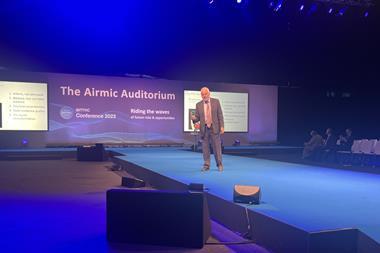The importance of integrated risk management and how it can benefit the bottom line were revealed at a joint seminar in London staged by AIRMIC and the Association of Corporate Treasurers (ACT) in October.
The partnership approach to risk management was championed by AIRMIC chairman, Alan Fleming, who called for better communication between risk managers and corporate treasurers in order to maximise the benefits of the "virtuous circle" of risk management. "There is a tendency for us to work in silos. We do speak a different language, although we have many similar objectives," he said.
The need for cross-functional working to control company-wide risk was being driven by a number of factors, not least the Turnbull Report, said Adrian Sweeney, ARF manager for Zurich International. This had made risk management a strategic necessity in the eyes of many board members.
Craig MacKenzie, director of ethics and governance at investment management company Friends, Ivory & Sime, agreed that the Turnbull report had thrown a fresh spotlight on corporate governance and directors' responsibilities. Combined with recent changes to UK pension fund legislation, it had also heightened the interest of investors in management controls and reputational risks. "A hit to reputation is a hit to long-term shareholder value," he explained.
Neil Warren, risk manager of Airbus Ltd, related how the new corporate governance requirements had provided him with a catalyst to help enlist senior management's support in developing a company-wide risk system which, in a bottom-up approach, reports risks for assessment and, in a top-down approach, "maps" risks for control and strategic planning.



















